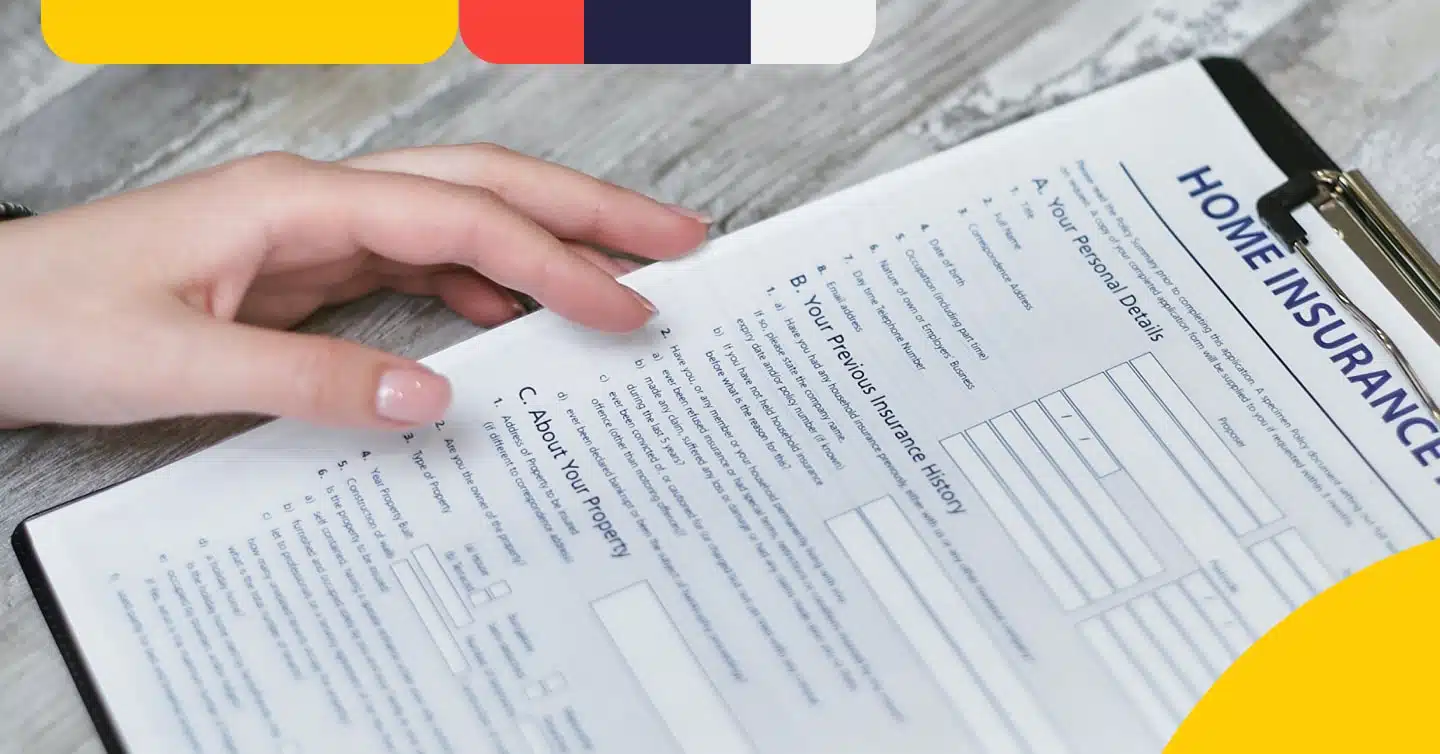Home Buying #Featured articles
Home Buying #Featured articles
Home Insurance in Canada: Types and Coverages

Table of contents
Homeowner’s insurance isn’t just a requirement from your lender; it protects one of your most valuable assets, your home. Home insurance protects more than just the physical structure of your property; it also covers your belongings, provides liability protection, and can even help cover temporary housing if your home ever becomes unlivable after a covered event.
With the cost of rebuilding rising and more frequent extreme weather events across the country, having the right coverage in place is more important than ever. Canadian insurers offer many coverage options, but not all policies are created equal. Whether buying your first home or reviewing your current policy, understanding your insurance options can help ensure you’re adequately protected.
Key Takeaways
- Comprehensive coverage offers the most protection but comes at a higher cost.
- Homeowners in flood or earthquake-prone areas may need separate endorsements.
- Comparing quotes and bundling policies are effective ways to reduce premiums.
How Home Insurance Works in Canada
Home insurance protects your home and personal belongings against various unexpected events. Most policies cover the home’s structure, contents inside the home, personal liability in case someone is injured on your property, and additional living expenses if you’re forced to move out due to a covered loss temporarily. These policies are typically offered as packages with varying levels of coverage depending on the type of policy you choose and the type of home you live in.
While home insurance isn’t a legal requirement, most mortgage lenders make it a condition of financing, meaning you’ll need proof of an active policy to secure a mortgage. Your homeowner’s insurance, in turn, protects your lender’s collateral. Home insurance premiums are calculated based on several factors, including the type of home, value, location, materials used in construction, claims history, and optional coverage add-ons.
Difference Between Home Insurance and Condominium Insurance
Home insurance and condominium insurance share some similarities, but they offer different types of protection based on the property type. Home insurance covers the entire structure, while condo insurance focuses more on the unit’s interior. The condo corporation’s strata insurance policy covers the building and shared areas.
Home Insurance
Home insurance typically covers a house’s entire structure, including the building itself, detached structures like garages or sheds, and the land it sits on.
Home insurance may cover:
- Damage or loss of your home
- Theft, loss, or damage to personal possessions
- Injury to others visiting your home or on your property
- Temporary living expenses if your home is uninhabitable
Condominium Insurance
Condo insurance will cover damage or loss to the inside of your condo unit, such as floors, walls, fixtures, personal belongings, and items in your storage locker. It also covers personal liability if someone is injured while inside your condo. Since your condo corporation has an insurance policy that covers the building structure and common areas, these are not included in your insurance policy. However, your condo may require you to purchase an add-on protection to cover the deductible for their policy, typically $100,000 or more.
Condo insurance may cover:
- Damage to the inside of your condo unit
- Theft, loss, or damage to personal possessions
- Damage to improvements made to your condo
- Damage to other condo units or common areas if the cause is from your unit
- Injury to others visiting your home while inside your unit
- Temporary living expenses if your unit is uninhabitable
Types of Home Insurance Coverage
There are many types of home insurance coverage in Canada, each offering a different level of protection and price point. The right choice depends on how much risk you are willing to take and how much coverage you want or require for your home and belongings.
Comprehensive Coverage
Comprehensive coverage offers the highest level of protection for homeowners. This insurance covers the building and its contents for all risks, except for those expressly excluded, typically flood, earthquake, and sewer backup, which are offered as optional coverages you may be able to purchase separately.
This type of coverage, typically the most expensive with higher premiums, is for homeowners who want maximum peace of mind. Having comprehensive coverage can save you significantly in the event of a major claim.
Basic or Named Perils Coverage
Basic or named perils coverage only protects your home and contents from what is stated in the policy. If the peril is not listed in your policy, it won’t be covered. You typically have the flexibility to choose what to cover, with plans usually covering the main threats like fire and theft. However, homeowners must be fully aware of what is and is not covered under the policy.
Since this option provides less coverage, it is generally more affordable than comprehensive policies. This type of coverage is for homeowners with a high risk tolerance and willing to take on the financial risk and potential financial loss if something that is not part of the policy happens.
Broad Coverage
Broad coverage provides a middle ground option between comprehensive and named perils coverage. With this policy, you have comprehensive coverage for the structure of your home, but it limits the protection of your contents to named perils only.
This hybrid approach is ideal for homeowners who want strong protection for their home and are comfortable with more limited coverage for their contents. This type of coverage balances coverage and costs.
No-Frills Coverage
Some insurers offer no-frills coverage for properties that don’t meet normal insurance coverage standards. This could be due to structural issues, code deficiencies, or significant safety concerns that would otherwise make them ineligible for home insurance.
This coverage offers minimal protection and is often a temporary solution to home insurance while you bring the home up to insurable standards. Because of its limited scope, no-frills coverage is not widely available and may not meet lender requirements for mortgage approval.
Optional Add-Ons and Endorsements
Standard home insurance policies cover many common risks; however, they don’t always account for every potential threat to your property or belongings. This is where add-ons or endorsements can be added, allowing homeowners to customize their coverage based on regional risks, property type, or personal needs.
Endorsements modify your existing policy by adding or removing coverage, which can be added at any time based on your needs. Costs will vary, and making changes to your policy by adding or removing optional coverage can increase or decrease your premium. Having optional add-ons can help ensure your insurance policy matches the unique risks associated with your home and personal property, offering more complete protection and peace of mind.
Risks typically not included in standard insurance policies that require you to add-on coverage:
- Overland water coverage – Protects against water entering the home from rivers or heavy rain (often excluded from base policies).
- Sewer backup coverage – Critical in flood-prone areas or older neighbourhoods.
- Earthquake insurance – Must have in some provinces due to high seismic hazard probability.
- High-value contents riders – For high-value items, including jewellery, art, or electronics above standard limits.
Find a better rate, and we’ll match it, beat it, or give you $500*.
*Conditions Apply
With nesto, it’s stress-free
How Deductibles & Premiums Work
Deductibles and premiums are two parts of any home insurance policy that you must pay attention to. The deductible is the amount you agree to pay out of pocket before your insurance coverage kicks in. For example, if you have a $1,000 deductible and need to make a claim for $10,000 in damages, your insurer will reimburse you $9,000. A higher deductible can lower your insurance premium, but it comes at the risk of paying more out of pocket in case of a claim.
The premium is the monthly or annual amount you pay for your home insurance coverage. It is calculated based on several risk factors, including the age and condition of your home, location, claims history, and the amount of coverage you choose. Adding optional endorsements or choosing a lower deductible will typically increase your premium.
How Location Impacts Insurance Needs
Where you live matters. Homes in wildfire zones (like parts of Alberta or BC), floodplains, or urban centres with higher crime rates often require specialized coverage and may come with higher premiums. Insurers assess:
- Proximity to fire hydrants or stations
- Regional weather risks
- Home age and construction type
- Local crime statistics
Ways to Save on Home Insurance
One of the most common ways to lower your premiums is if you bundle your insurance together, say with home and auto or life, with the same insurance provider giving you a multi-product discount on your premiums. You can also reduce your premiums by raising your deductible, as long as you can afford to pay the amount out of pocket in case of a claim. Some insurers may also offer discounts for being claims-free for several years.
Additionally, installing safety features in your home, like burglar alarm systems and water sensors, could help you get a discount on your insurance premiums. Insurance companies typically offer discounts for measures that make your home safer since it reduces their risk. Comparing quotes from multiple providers and shopping around for a better policy or premiums before renewing is another smart step that could lead to additional savings.
Ways you can save on insurance premiums:
- Bundle home and auto policies with the same provider.
- Increase your deductible (the higher the deductible, the lower the premium).
- Install home safety devices (smoke alarms, security systems, sump pumps, water sensors).
- Maintain good credit (some insurers may use it to assess risk in some provinces).
- Shop around at renewal time to compare policies and premiums.
Frequently Asked Questions (FAQ) on Home Insurance in Canada
Is home insurance mandatory in Canada?
Home insurance is not legally required, but lenders typically make it mandatory to get a mortgage.
What does home insurance typically not cover?
Standard policies usually exclude earthquakes, overland flooding, sewer backup, and high-value personal items. These will typically require an optional add-on to your coverage.
How much home insurance do I need?
You should choose your home insurance coverage based on having enough to rebuild your home at today’s construction costs and replace your personal belongings. It’s advisable to periodically inventory your personal belongings to ensure you have enough coverage.
Final Thoughts
Home insurance is a critical safeguard for your home, personal belongings, and financial stability. With climate-related risks and natural disasters on the rise and rebuilding costs climbing across the country, having the right coverage in place can make all the difference if disaster strikes.
Understanding your policy’s limits and ensuring the proper endorsements are in place could save you thousands. Whether purchasing your first home, updating your existing policy, or simply reviewing your coverage options, evaluating and comparing policies can ensure you are prepared for the unexpected.
Looking to pair your home coverage with a smart mortgage strategy? Contact nesto mortgage experts today to explore mortgage options that suit your property, location, and budget.
Ready to get started?
In just a few clicks, you can see our current rates. Then apply for your mortgage online in minutes!















